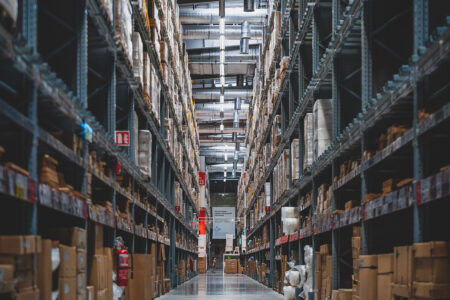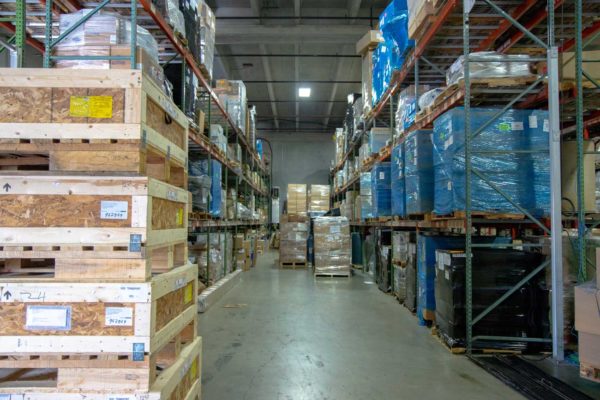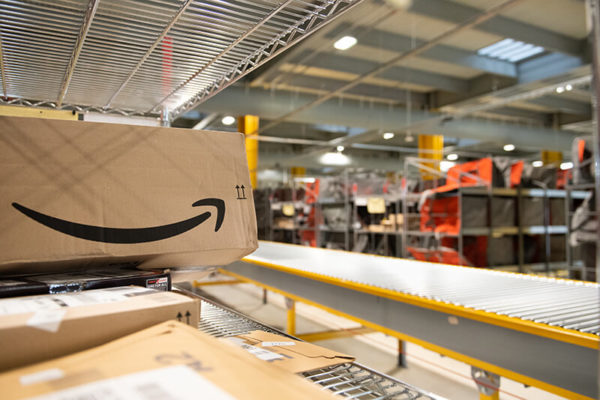In the fast-paced and ever-evolving landscape of e-commerce, one thing remains constant: the critical role of the warehouse in the fulfillment process. Amid the complex web of transactions that e-commerce businesses navigate daily, the warehouse stands as a beacon, illuminating the path from order placement to product delivery. It’s the nucleus of the fulfillment process, responsible for ensuring that the right product gets to the right customer at the right time.
At GoWhseHub, we take immense pride in our deep understanding of warehouse operations and the value they bring to e-commerce businesses. With years of industry experience under our belt, we’ve seen first-hand how effective warehouse functions can propel an e-commerce business to new heights of customer satisfaction and operational efficiency. In this article, we’ll take you on a journey behind the scenes of warehouse operations, shedding light on the critical roles they play, from storage to shipping.
We’ll also discuss the distinct advantages that professional fulfillment warehouse services offer to e-commerce shops. So, whether you’re a budding e-commerce business or an established brand looking to streamline your fulfillment process, there’s a wealth of insights in store for you. Let’s dive in!
Unpacking the Role of Warehouses in the Fulfillment Process
At the heart of any successful e-commerce business is an efficient and reliable fulfillment process. It begins when a customer places an order and concludes when that order arrives at their doorstep. Nestled within this process, warehouses play a critical role.
The first significant function of a warehouse is receiving. As goods arrive from various suppliers, they are checked for quantity and quality, sorted, and stored. The warehouse also ensures that these products are stored under optimum conditions to maintain their quality. This organization enables easy retrieval of products when orders come in.
Following the receiving phase is inventory management. The warehouse maintains up-to-date records of the quantity of each item in stock. This real-time information helps businesses make informed decisions about stock control, avoiding overstocking or understocking.
Powering the Order Processing Function
When it comes to order processing, warehouses stand at the forefront. Upon receiving an order, the warehouse staff retrieves the correct items from the storage area. This process, known as picking, is a crucial function that requires accuracy to ensure customer satisfaction.
Post-picking, packing comes into play. Products are carefully packed to prevent damage during transit. Different products require different types of packaging materials, and an experienced warehouse team ensures that each item is packed appropriately.
The final step within the warehouse is shipping. Once items are packed and ready, they are dispatched to customers. It’s vital to ensure that the right packages reach the right customers at the right time, and the warehouse plays an integral part in making this happen.
Warehouse Functions: Going Beyond the Basics
Indeed, the role of modern warehouses extends far beyond the basic functions of receiving, storing, and shipping products. Warehouses have evolved and innovated to offer a variety of value-added services that cater to the diverse and evolving needs of e-commerce businesses.
One such service is kitting, which involves bundling multiple items together as a single SKU. Kitting is particularly valuable for e-commerce businesses that sell items commonly purchased together. By pre-assembling these items into one package, businesses can improve operational efficiency and offer their customers the convenience of a single, consolidated order. Furthermore, kitting can significantly expedite the order fulfillment process, ensuring that customers receive their orders faster.
Product labeling is another additional service that modern warehouses offer. Proper labeling is crucial in ensuring accurate tracking and identification of products throughout the supply chain. With professional labeling services, businesses can ensure consistency, reduce errors, and improve inventory management.
Other value-added services that some warehouses provide include product customization, where products are personalized based on specific customer requirements, and product assembly for items that need to be put together before shipping.
Such services go a long way in enhancing the customer experience, differentiating an e-commerce brand in a crowded marketplace, and creating a robust value proposition. At GoWhseHub, we pride ourselves on providing these essential value-added services to our clients, recognizing the positive impact they can have on the customer journey and overall business operations.
In the ever-competitive world of e-commerce, going beyond the basic warehouse functions is not just an added advantage; it’s a necessity for businesses striving to stay ahead. Hence, it’s crucial to partner with a fulfillment warehouse provider that understands these needs and offers solutions tailored to your business.
Why Choose Fulfillment Warehouse Services for E-commerce?
Utilizing professional fulfillment warehouse services comes with a host of benefits. By outsourcing these operations, e-commerce businesses can focus on their core competencies, such as product development and marketing, while leaving logistics to the experts.
An efficient warehouse can greatly speed up the fulfillment process, meaning customers receive their orders quicker. This not only enhances customer satisfaction but also builds loyalty and trust.
Additionally, fulfillment warehouses have the resources and expertise to handle large volumes of orders, manage inventory efficiently, and scale operations as your business grows. They also handle returns, ensuring they are processed correctly and quickly.
At GoWhseHub, we understand the complexities of the fulfillment process and how vital efficient warehousing is. We’re committed to providing reliable, efficient, and scalable warehouse solutions that help our clients succeed in the competitive e-commerce marketplace.
In conclusion, the functions of a warehouse in the fulfillment process are manifold and crucial. It’s the linchpin that holds the entire operation together, from storage to shipping. By partnering with an experienced warehouse service provider, e-commerce businesses can reap significant benefits and focus on what they do best — creating fantastic products and experiences for their customers.
Sources:
- Shopify’s comprehensive guide on Order Fulfillment that provides a deep dive into various aspects of the process.
- An article by the Balance Small Business on the Role of Warehouses in Inventory Management that can provide further insights into this specific function.
- ShipBob’s informative piece on The Role of a Warehouse in a Supply Chain offers a broader look at the various functions of a warehouse.
- Practical Ecommerce’s article on The Importance of Kitting in Ecommerce Warehouses offers a detailed look at the kitting process and its benefits.





